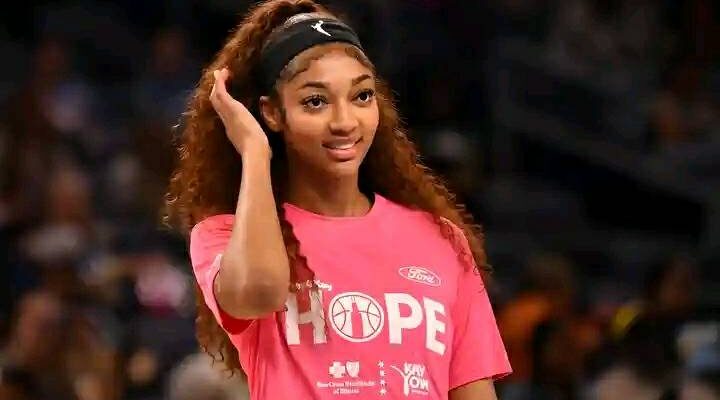The Low Number of Votes Fellow WNBA Players Gave Emerging Stars Caitlin Clark and Angel Reese for WNBA All-Star: An In-Depth Analysis
The WNBA All-Star selection process, a coveted recognition that spotlights the league’s top talent, recently revealed a surprising trend: two of the most promising and hyped young players, Caitlin Clark and Angel Reese, received a surprisingly low number of votes from their fellow WNBA players. This development has sparked discussions around the factors influencing player voting behavior, the recognition of emerging talent, and the broader implications for the league’s future.
In this essay, we explore the context surrounding Clark and Reese’s voting results, the dynamics of player voting in the WNBA, potential reasons behind the voting patterns, and what it means for the growth of women’s basketball.
Before diving into the voting results, it’s essential to understand the stature of Caitlin Clark and Angel Reese within women’s basketball.
Caitlin Clark burst onto the national scene as a collegiate sensation at the University of Iowa. Known for her incredible scoring ability, court vision, and flair, Clark quickly became one of the most electrifying players in women’s college basketball. Her combination of deep shooting range, playmaking, and confidence has drawn comparisons to some of the greatest players in the game. She’s been celebrated for putting up eye-popping stats and carrying her team on her back throughout her college career.
Angel Reese emerged from the University of LSU as a dominant force on the court, known especially for her physicality, rebounding prowess, and defensive tenacity. Reese has carved a reputation for being a relentless competitor with a high basketball IQ, making her a force to reckon with in the paint. Her presence on the floor changes the dynamic of any game, and she has quickly gained respect for her leadership and impact on LSU’s success.
Both players symbolize the future of women’s basketball — youthful, dynamic, and embodying different but complementary skill sets. Naturally, many expected these stars to be recognized heavily in WNBA All-Star voting, especially by their peers who understand the nuances of the game.
The WNBA All-Star selection process combines votes from fans, media, and players, with each group contributing a portion to the overall decision. Importantly, the player vote is a significant component, as it reflects the respect and recognition from those who share the court with the nominees every day.
Fellow players, given their intimate knowledge of opponents’ skills and impact, are often seen as the most informed voters. Their perspectives are thought to be less influenced by media hype or popularity, and more grounded in direct experience and professional respect.
However, this assumption does not always translate into predictable outcomes. Player voting can be influenced by various factors including personal relationships, team rivalries, player seniority, and perceptions shaped by experience or style of play.
Despite their undeniable talents and recent successes, Caitlin Clark and Angel Reese received noticeably fewer votes from their WNBA peers than anticipated. This low level of peer recognition raises questions about why fellow players might have underappreciated two of the league’s brightest emerging stars.
The surprise is particularly stark given Clark’s offensive brilliance and Reese’s dominance on the boards—both critical contributions to winning basketball. Their limited votes could indicate a deeper, more complex phenomenon within the WNBA player community’s voting behavior.
- Lack of WNBA Experience
One likely reason is their relative newness to the league. While Clark and Reese have made waves in college and on the international stage, their transition to the WNBA is still recent. Many veteran players might prioritize those who have established long-term impact in the league over newcomers. The weight of experience can influence respect and voting preferences.
- Playing Style and Visibility
Caitlin Clark’s flashy, high-scoring style may be polarizing among players who value different aspects of the game. Similarly, Angel Reese’s physicality and inside play might be undervalued by players who emphasize different skill sets.
Player votes sometimes reflect personal preferences or styles they find more “fundamentally sound” or impactful in a team context. If Clark’s and Reese’s styles do not align with the values or expectations of the majority of voters, it could explain their low vote totals.
- Team Success and Market Size
The teams these stars play for and their market visibility might also influence votes. Players on higher-profile teams or in bigger markets often receive more attention and thus more votes. If Clark’s or Reese’s teams aren’t seen as championship contenders or lack widespread media attention, their peers might subconsciously deprioritize them.
- Internal Politics and Relationships
Sports leagues are not immune to personal dynamics and politics. Rivalries, friendships, and off-court relationships can shape voting patterns. If there are perceived tensions, or if players don’t have strong relationships with Clark or Reese, this might affect the number of votes they receive.
- Voting Fatigue or Conservative Choices
Players might default to voting for familiar veterans rather than newer faces. This tendency can result in conservative voting patterns that favor established stars. Emerging players often face a delayed recognition curve in peer voting.
The low votes for Caitlin Clark and Angel Reese shed light on broader issues in the WNBA’s evolving landscape:
- Recognition of New Talent: The league’s voting system and culture may need to better balance respect for veteran players with enthusiasm for new stars. Elevating emerging talent through voting is critical for the league’s growth and appeal to younger fans.
- Visibility and Marketing: Enhancing the visibility of younger players via media coverage, endorsements, and league promotion could help raise their profile among peers and fans alike.
- Player Empowerment and Relationships: Encouraging stronger camaraderie and networking among players could foster more inclusive voting behaviors and mutual respect.
- Reflecting the Future of Women’s Basketball: The WNBA is evolving rapidly, with new talents shaping its direction. Voting results that overlook these players may signal a disconnect between current league culture and future potential.
The low number of votes given by fellow WNBA players to Caitlin Clark and Angel Reese for the All-Star selection is a complex issue rooted in experience, style preferences, team visibility, and league culture. While surprising on the surface, it underscores the nuanced dynamics of player recognition in professional sports.
As the WNBA continues to grow and evolve, embracing and celebrating emerging stars like Clark and Reese is essential. Doing so will not only validate the efforts of young athletes but also energize the league’s fanbase and ensure a vibrant future for women’s basketball.
Ultimately, the WNBA and its players have a unique opportunity to redefine how peer recognition works, balancing respect for tradition with excitement for the new generation. For Caitlin Clark, Angel Reese, and others like them, this moment is not a setback but a stepping stone toward greater prominence and impact in the years ahead.



